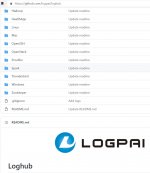Hi mates
I would like to suggest that CompTIA, as a neutral certificate provider, introduce more in-depth and detailed information on how to interpret event logs from different sources and manage them, for example: network devices, OS, Apps, among others.
Events Logs have their lifecycle. CompTIA, I suggest you put more details on the subject in the study guides and consequently in the exams.
This would provide a more solid foundation for network analysts and engineers.
There is a lot of misinterpretation of log messages by Analysts and Network Engineers and this misinterpretation can result in delay in accurate collection of information or poor incident response
I had never seen a book or guide that went into depth about interpreting and detailing message logs.
example: How does a log message present itself when it is a brute force in windows authentication, in FTP, SSH protocols? or even on a Cisco Router, Switch?
another example: privilege escalation on linux account. how look like? mensage log
Guys what your view point about?
I would like to suggest that CompTIA, as a neutral certificate provider, introduce more in-depth and detailed information on how to interpret event logs from different sources and manage them, for example: network devices, OS, Apps, among others.
Events Logs have their lifecycle. CompTIA, I suggest you put more details on the subject in the study guides and consequently in the exams.
This would provide a more solid foundation for network analysts and engineers.
There is a lot of misinterpretation of log messages by Analysts and Network Engineers and this misinterpretation can result in delay in accurate collection of information or poor incident response
I had never seen a book or guide that went into depth about interpreting and detailing message logs.
example: How does a log message present itself when it is a brute force in windows authentication, in FTP, SSH protocols? or even on a Cisco Router, Switch?
another example: privilege escalation on linux account. how look like? mensage log
Guys what your view point about?
Last edited:

